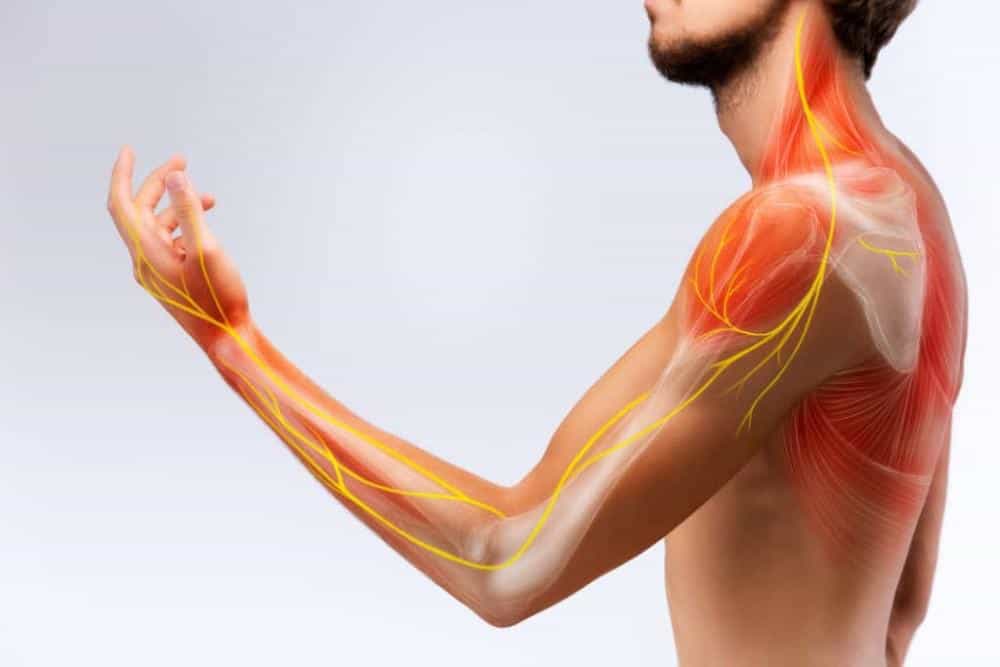Has your physician ever told you that the pain going down your arm might be coming from a trapped or pinched nerve? If so, you might be confused as to what that means or where exactly the nerve is trapped.
To understand what exactly a trapped nerve is and what can be done about it, keep reading!
What is a trapped or pinched nerve?
A trapped or pinched nerve is a term used to describe any type of nerve impingement typically related to the spine.
The nerve is most commonly trapped where it exits out of the spine between the vertebrae.
However, the nerve can get entrapped anywhere along the path it travels as it exits out of the spine as well.
What are the symptoms of a trapped or pinched nerve?
The symptoms of a trapped nerve will depend on the severity of impingement of the nerve and which level of the spine the nerve is entrapped at.
In some cases, people will feel a burning sensation and numbness or tingling in either their arm or leg. You will feel symptoms in your arm if the nerve is entrapped at your neck and in your leg if the nerve is entrapped in your lower back.
In more severe cases, you may experience a loss of muscle strength as a result of the nerve being trapped.
What causes a nerve to get trapped or pinched?
A nerve can get pinched or entrapped for a several reasons.
One common reason is either a disc herniation or bulge in the spine that hits the nerve as it exits out between the vertebrae.
Another common reason is that as we age, we lose space between our vertebrae making it more difficulty for the nerves to exit without getting compressed by the vertebrae.
Potential Diagnoses
If you are diagnosed with a trapped or pinched nerve, you will most likely be given one of the following diagnoses:
- Cervical radiculopathy (neck nerve entrapment)
- Lumbar radiculopathy (low back nerve entrapment)
- Herniated or bulging neck or low back disc (could be in neck or low back)
- Foraminal stenosis (decreased space between the vertebrae where the nerve exits)
Did you know?
Did you know that you can help to alleviate pain related to a pinched nerve by improving your posture?
When we rest in a poor posture, we are decreasing the space between the vertebrae where the nerves exit and placing ourselves at a greater risk for pinching the nerve.
By simply focusing on a tall upright posture, you can help to reduce the amount of compression on the nerve and effectively reduce your overall pain.

